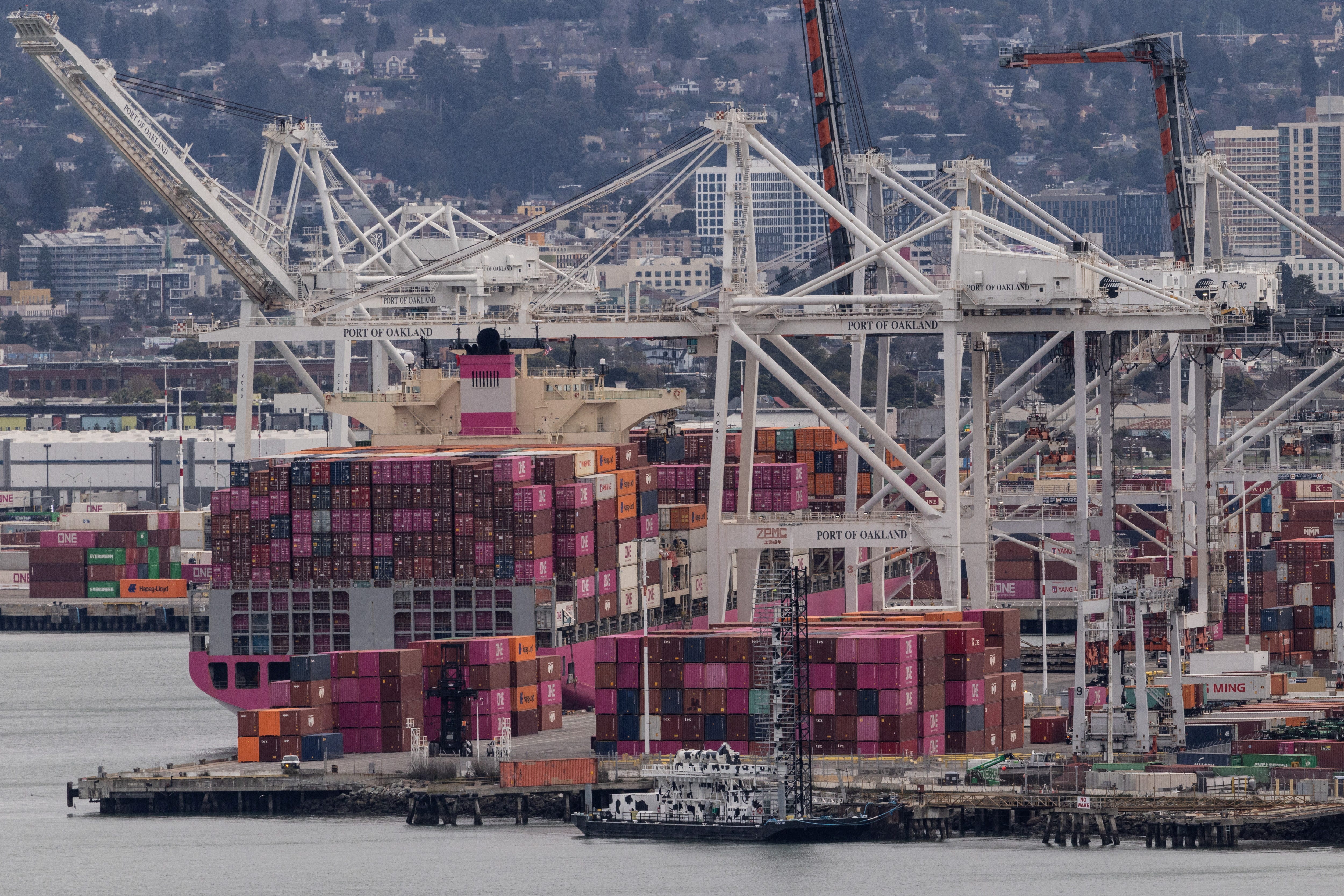
Carlos Barria/REUTERS
- The Supreme Court has agreed to hear and expedite a case on whether Trump’s tariffs are legal.
- The Trump administration could have to refund $1 trillion in tariff revenue if the tariffs are struck down.
- Legal experts said that fiscal disruption doesn’t hold merit for a case to be ruled as lawful.
The US could be on the hook for between $750 billion $1 trillion, if the Supreme Court overturns the president’s tariffs.
Legal experts told Business Insider that this figure shouldn’t factor into the Supreme Court’s decision on whether the tariffs are legal, which they see as a matter concerning the Constitution.
After two lower courts ruled President Donald Trump’s sweeping emergency tariffs illegal, the Supreme Court granted the administration’s petition to hear and expedite the case on Wednesday.
Trump’s team claimed in the petition that the economic consequences would be “ruinous” for the country should the tariffs be struck down.
“For example, delaying a ruling until June 2026 could result in a scenario in which $750 billion – $1 trillion in tariffs have already been collected, and unwinding them could cause significant disruption,” Treasury Secretary Scott Bessent said in a filing submitted to SCOTUS earlier this month.
William Reinsch, the Scholl Chair in International Business at the Center for Strategic and International Studies, told Business Insider he expects the Supreme Court to make a final decision before the end of the year.
“My experience with the Supreme Court is that when it comes to an economic issue, they don’t always break along typical ideological lines,” said Reinch. “The economic stakes here are significant in addition to the foreign policy stakes.”
“I don’t think it’ll be unanimous,” Reinsch added. “But I wouldn’t rule out the possibility that this is the first big case where they go against the president.”
The trillion-dollar problem
The Trump administration has imposed a range of widely changing tariffs since February under the International Emergency Economic Powers Act, a 1970s law used for economic sanctions during national emergencies.
Aside from a few industry-targeted tariffs, almost every other measure, from the short-lived, cumulative 245% tariff on China to the April 2 tariffs on more than 75 trading partners, has been enacted under the IEEPA.
Multiple lawsuits, mostly from small businesses, have since challenged the legality of these tariffs, arguing that the power to set duties belongs to Congress and cannot be delegated to the President at will. The Court of International Trade and a federal appeals court have ruled the tariffs illegal, but they remain in place after a lower court blocked an injunction to halt them.
Will Planert, a partner in international trade practice at Morris, Manning & Martin LLP, told Business Insider that he thinks at least some of the six conservative Supreme Court Justices would be disturbed by the idea of expanding presidential power over economic decisions, as it would grant future presidents such powers too.
“In Biden’s attempt to modify the student loan program, for example,” said Planert, “Those justices have been very skeptical of the idea that Congress can confer very broad economic powers on the president or the federal agencies.”
Planert added that although he doubts that the government losing the sum of money it did not have just half a year ago would be “ruinous,” any amount of fiscal disturbances should not be taken into consideration when the decision should rely on the Constitution.
According to the Tax Foundation, an independent tax policy research group, Trump’s imposed tariffs would raise $2.3 trillion in revenue over the next decade, and reduce the GDP by 0.9%, before taking foreign retaliation into account.
“If the tariffs are illegal, then they are illegal irrespective of fiscal impact,” said Planert. “In that case, the government would have collected a very large amount of money that it’s not entitled to, which would be all the more reason to have it returned.”
The refund process
The federal government has had to issue refunds in the past because of Supreme Court decisions. In 1998, the Supreme Court ruled the Harbor Maintenance Tax on exports to be unconstitutional, and that resulted in refunds of over $1 billion to affected exporters.
Robert Shapiro, chair of international trade practice at Thompson Coburn LLP, told Business Insider that a company would usually have to file a protest for every entry to receive money from customs, but that may be tough on customs when it comes to handling almost every shipment that has entered the country since April.
“Having customs do the work twice for everything just doesn’t make sense,” said Shapiro. “It may eventually be up to the Board of International Trade to decide how to do the refunds.”
“What would be interesting to see next would be what this would legally open up,” Shapiro added. “Since many companies were explicit that they had to raise prices due to tariffs, customers may want their money back, too, if importers are getting theirs.”
Read the original article on Business Insider
The post The US could owe $1 trillion should the Supreme Court strike down emergency tariffs appeared first on Business Insider.




